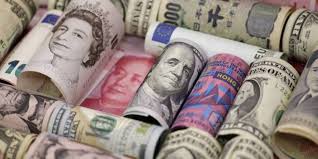The Central Bank of Nigeria (CBN) says it has recovered on behalf of customers over N60 billion excessive charges imposed on them by defaulting banks.
Deputy Director, Consumer Protection Department of the CBN, Mrs. Chinyere Obilor, who disclosed this during a sensitization forum organized by the apex bank in Owerri, explained that it was as a result the over 13,000 complaints which were received from various bank customers over illegal and excess charges on their account
Speaking during the event, she encouraged members of the banking public to immediately report unethical and illegal practices by the various commercial banks just as she also informed them that different penalties were imposed on the banks for those practices.
Also the Director, Corporate Communications, CBN, Isaac Okoroafor, disclosed that the apex bank, through its activities, hopes to create 10 million jobs by 2025. He said that CBN, through its development function wanted to stop inflation by controlling the rise of food prices and making credit facilities available at single-digit interest rate. The 10 million job creation would be achieved through 10 commodity models chosen by the bank.
Okoroafor said, “This will be achieved through 10 commodity models carefully chosen by CBN management. They include cotton, cocoa, maize, dairy, palm oil, fishery, poultry, cattle, tomato and cassava.”
ALSO READ: FG reveals reasons for $500m loan request for NTA
Going further, he said that CBN would be giving out high yielding seedlings, fingerlings and other inputs, to farmers, stressing that the apex bank is committed to the welfare of farmers around the country.
He also said, “As a way of assisting farmers, the CBN will provide anchor companies, who will buy off the products from the farmers, immediately after harvest. This will create the best value chain for the farm products.”
He pointed out that the intention of the bank was to bring back farm settlements across the country as it used to be before as this would be the easiest way to build the nation’s economy.
It will be recalled in an earlier circular made available on December 20, 2019, that the CBN issued a revised guide to charges by banks and other financial and non-bank financial institutions.
The guide includes a downward review of charges for electronic banking transactions, review of other bank charges to align with market developments and most importantly sanctions to directly address instances of excess, unapproved and/or arbitrary charges.

 Entertainment6 days ago
Entertainment6 days ago
 Health1 week ago
Health1 week ago
 Health4 days ago
Health4 days ago
 Football1 week ago
Football1 week ago
 Football1 week ago
Football1 week ago
 Crime5 days ago
Crime5 days ago
 Education6 days ago
Education6 days ago
 Health6 days ago
Health6 days ago













